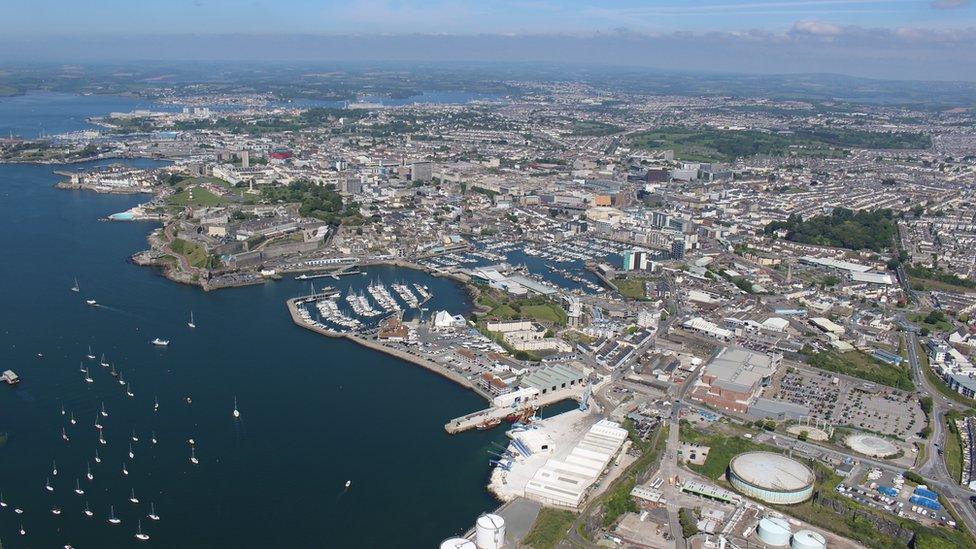Plymouth Freeport opens for business after final approval
- Published
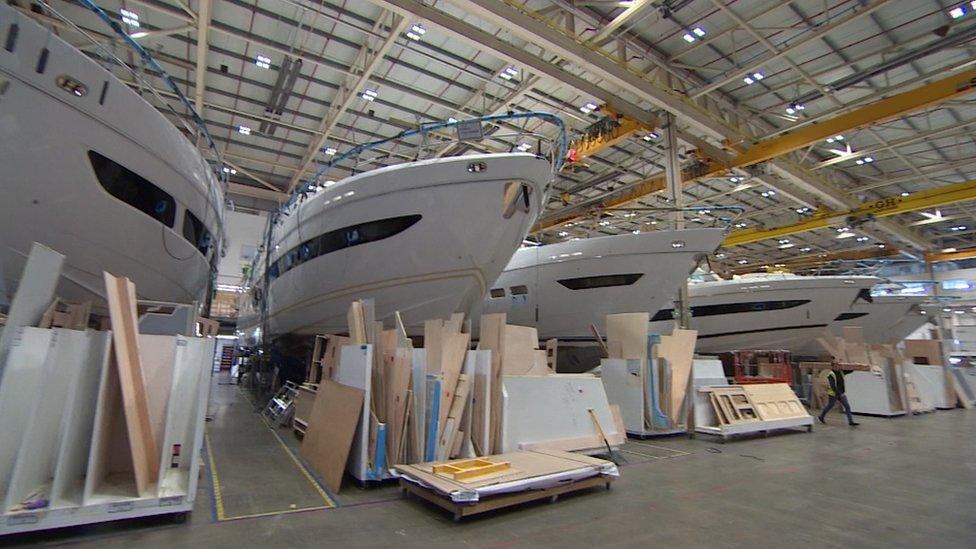
A major expansion plan for luxury boat maker Princess Yachts is planned with the freeport status
Plymouth and South Devon Freeport is up and running after receiving final government approval.
It is among the first of eight freeports to open, alongside those in Solent and Teesside.
The freeport authority said it would unlock millions of pounds in funding and create 3,500 jobs, mainly in maritime and defence industries.
But one MP queried whether jobs would be moved from other areas to the port rather than new ones being created.
Freeports offer a number of tax and other incentives to encourage firms to invest in the area.

Analysis
Martyn Oates, Political Editor, BBC South West
In a week in which the government has been forced to change tack on housing and energy policy by its own backbench MPs, today saw it ploughing ahead with a project which has survived unscathed since Boris Johnson's premiership.
The Johnson government argued the project had been enabled by Brexit.
Freeports are possible within the EU - the bloc currently has about 80 and until 2012 the UK had seven as an EU member - but members states are more restricted as to the benefits which can be offered.
The "outer boundary" of the Plymouth and South Devon freeport encompasses a vast area, including Dartmoor - provoking concerns that Dartmoor National Park's protected status might be under threat.
However, the government insists "freeport status in no way undercuts the local planning process and there is no change to the current planning and environment status of national parks".

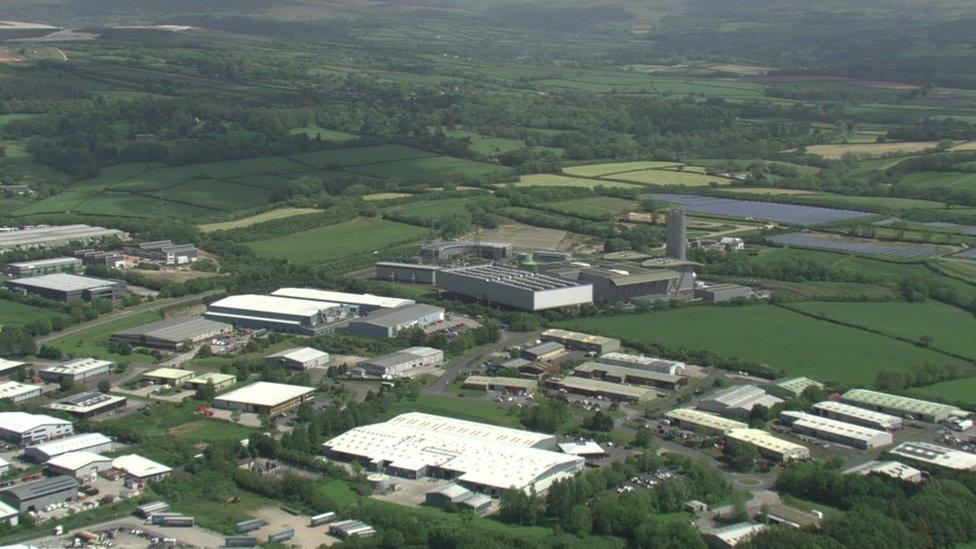
The owner of Langage Energy Park, is planning to start hydrogen production
Businesses can now plan their place at designated sites Langage, South Yard in Plymouth and Sherford, said Plymouth and South Devon Freeport.
A major expansion of luxury boat maker Princess Yachts in Plymouth was planned with the freeport's confirmation, it said.
Carlton Power, the owner of Langage Energy Park, was also planning to start hydrogen production.
David Lockwood, chief executive of naval contractor Babcock, said the freeport would bring "significant opportunities and potential employment".
Levelling Up minister Dehenna Davison said it was a "historic day" and the freeport would "shape the fortunes of the Plymouth and south Devon economies by pumping up to £100m worth of investment across the region".

What are freeports?
Goods imported into freeports from abroad are exempt from taxes, called tariffs, that are normally paid to the UK Government on arrival.
It means manufacturers in freeports can import raw materials tariff-free, only paying tariffs on finished products leaving the site for elsewhere in the UK.
Or, the goods can be re-exported overseas without the UK duties being paid.
In England, it has been confirmed companies inside the sites will also be able to claim lower property taxes, including on new buildings they buy.
Companies based in freeports will also benefit from lower rates of national insurance - a tax paid on employees' wages - if they take on new staff.

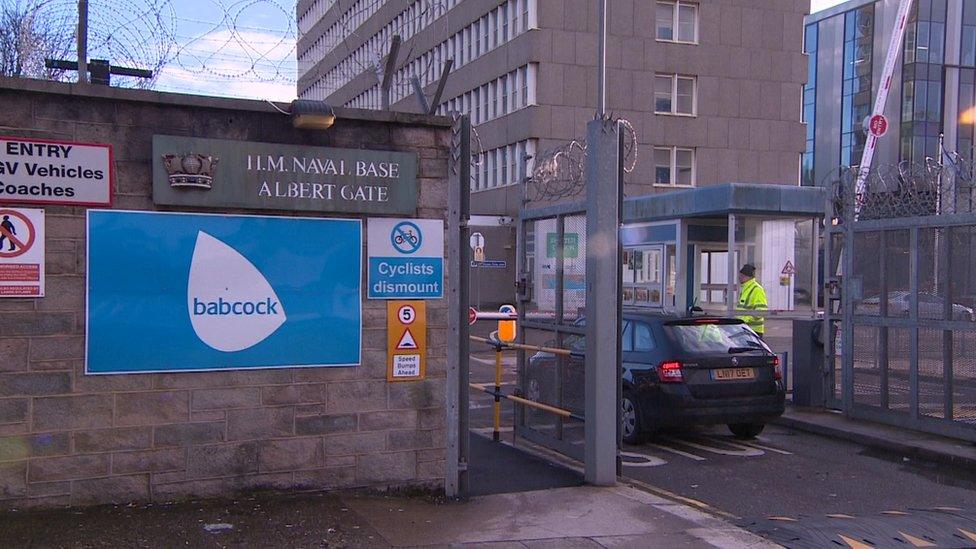
Naval contractor Babcock said the freeport would bring significant opportunities and potential employment
Richard Bingley, leader of Plymouth City Council, said the freeport was "putting this area on the map for foreign investment and attracting businesses to relocate here".
Devon County Council leader John Hart said it would "enhance our county's reputation in the marine, defence and space sectors".
Luke Pollard, Plymouth Sutton and Devonport Labour MP, said any new investment in the city was good.
"But I worry that this is simply going to be an opportunity for investment that was going to be taking place in another part of Plymouth or Devon, moving into this zone," he said.
"So it's moving jobs, not necessarily about creating jobs.
"I'm not sure that delivers the benefits that the council claims it will do."

Follow BBC News South West on Twitter, external, Facebook, external and Instagram, external. Send your story ideas to spotlight@bbc.co.uk, external.
- Published23 May 2022
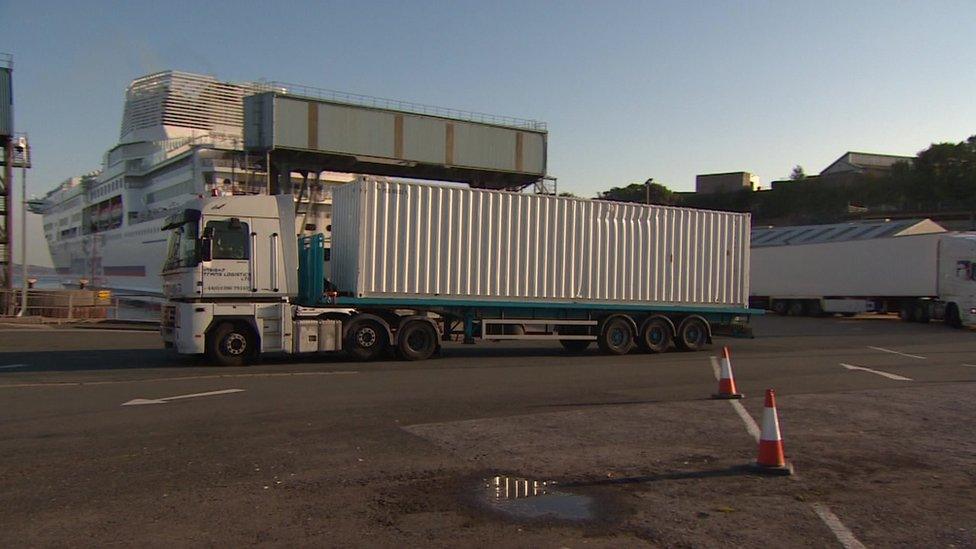
- Published22 March 2023
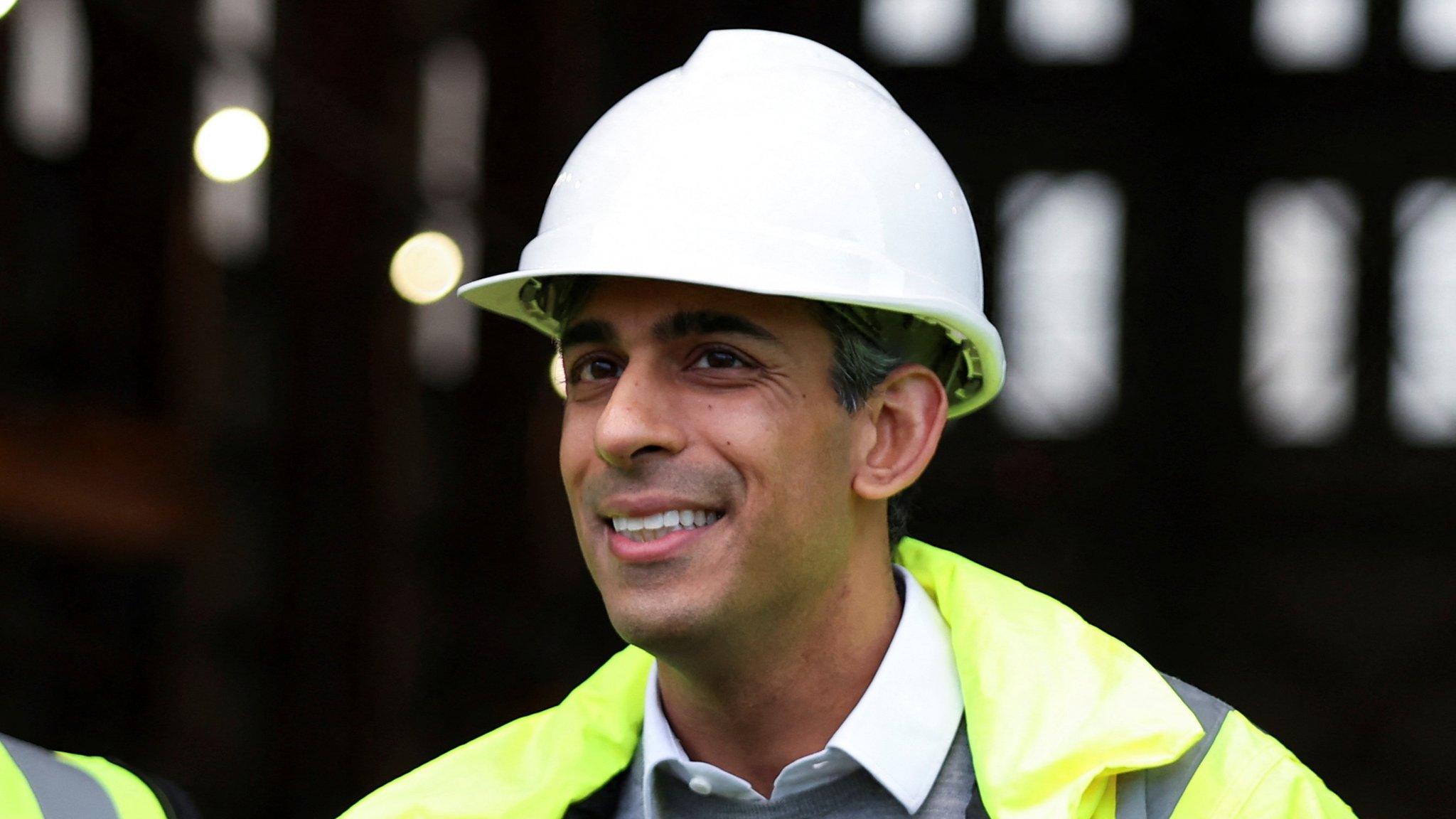
- Published11 March 2021
